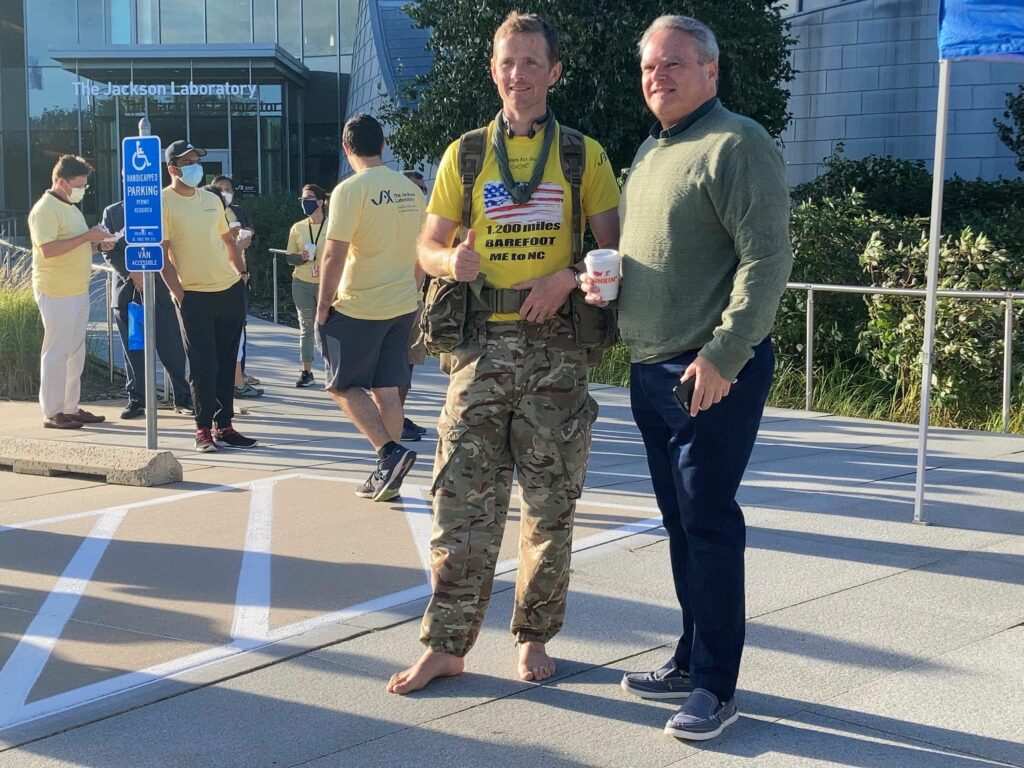The baby’s seizures began the night her parents brought her home from the hospital.
“I cannot explain to you how frightening and terrifying it is to see your child in pain, mouth open, trying to scream but not even being able to produce a noise,” said Chris Brannigan, the girl’s father and a major in the British Army.

“From there, it kept going,” he said. “There were many nights we sat beside her bed and we weren’t sure if she was going to make it to the following morning. … Her hands [would] turn blue, her face [would] turn blue, and she was struggling for breath.”
It would be nearly a decade before Brannigan and his wife, Hengameh Delfaninejad, learned their daughter Hasti, now 9 years old, has a rare genetic disorder called Cornelia de Lange syndrome. Resulting from a random, typically nonhereditary genetic mutation, the disease affects about one in every 10,000 live births in the U.S. and can severely impact a person’s mental and physical development, and life span. There is no known cure or treatment for the disease.

In an effort to raise funds and awareness for treatment research, Brannigan, who lives in the U.K., began in late August a 1,200-mile “Barefoot March” down the East Coast. He started at The Jackson Laboratory headquarters in Bar Harbor, Maine, and will end at the Marine Corps Base Camp Lejeune in Jacksonville, North Carolina, in late October. The family started working with Jackson’s Rare and Orphan Disease Center in Bar Harbor several years ago to research their daughter’s condition.
By the time Brannigan stopped by Jackson’s campus at UConn Health in Farmington on Sunday morning, he had already walked about 380 miles, carrying a 55-pound survival kit that includes the tent where he sleeps, said lab director Dr. Charles Lee.
“You’ve taken 60,000 steps per day, endured blisters on your feet, heavy traffic and torrential rain to get here,” said Lee, addressing Brannigan at a small ceremony outside the lab building.
Combined, about 7,000 rare diseases affect nearly 30 million Americans, said. Dr. Juan Salazar, physician-in-chief at Connecticut Children’s, which is working with Jackson and UConn Health to find rare disease cures through gene therapy. But more than 90% of those diseases are without a single FDA-approved treatment, according to the National Organization for Rare Disorders, and it can take about seven years to diagnose a person with such a disease.
“Chris mentioned how difficult and how long it was to make the diagnosis for his daughter, and that is something we need to change,” said Salazar.
Brannigan and Delfaninejad launched a charity in 2020 called Hope for Hasti. As of Sunday afternoon, the father’s march had raised about £53,215, or about $73,120, of the family’s £100,000 goal. Proceeds will go toward the completion of a research project at Jackson and future clinical trials.
“Our journey is not done yet,” he said. “We’re working toward a gene therapy for CdLS, and we’re hoping there will be many more therapies in the future for children who have this condition.”
—-
©2021 Hartford Courant.
Distributed by Tribune Content Agency, LLC.



